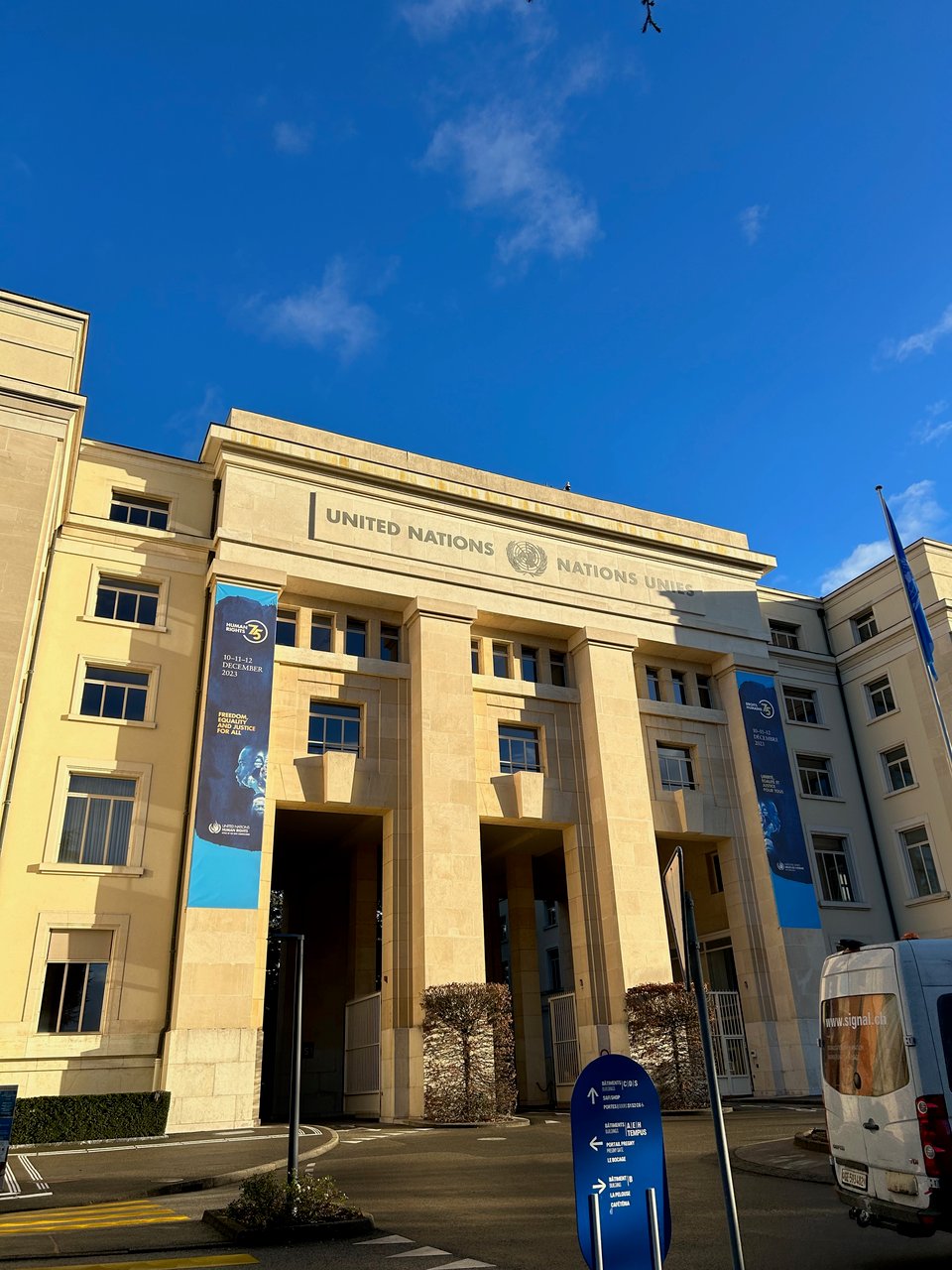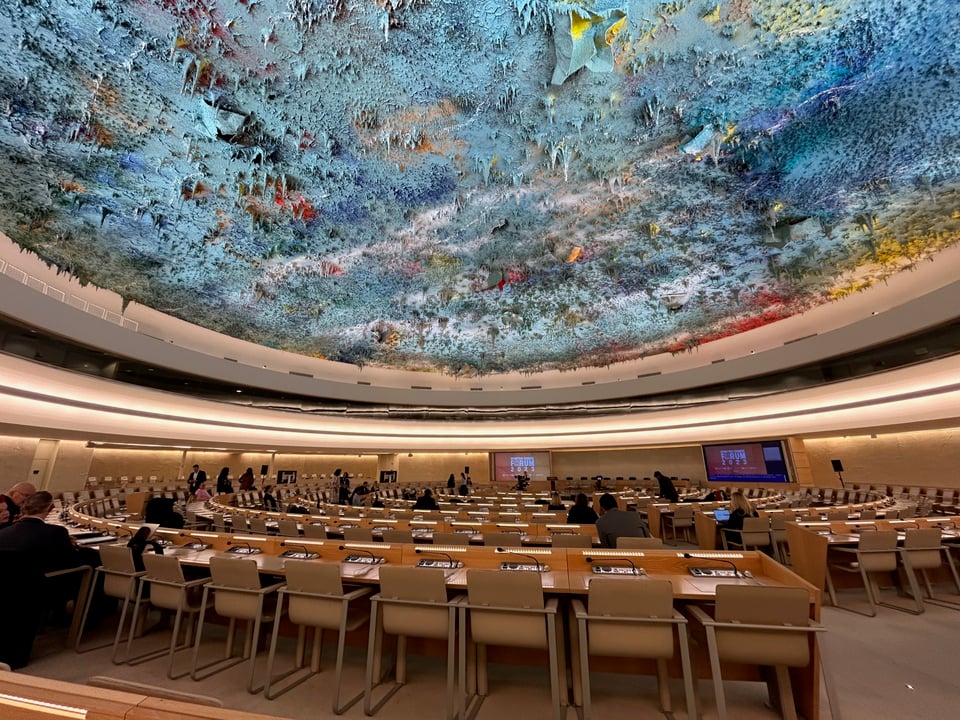TESTED EPISODE FOUR: RUNNING IN CIRCLES

Episode Four: Running In Circles
In 2009, South African sprinter Caster Semenya won gold at the World Championships. But instead of a celebration, she endured endless speculation about her body, her biology, and her gender. And soon, sports organizations would launch a new round of regulations, lead to multiple court cases, and require sporting organizations to justify their claim that DSD athletes have an unfair advantage.
→ → → LISTEN HERE (or wherever you get podcasts) ← ← ←
For each episode, we’ve published a full, annotated transcript with sources and further explanation for all the things we’re saying. You can find those here.
The Tested website also features a few other goodies, including this timeline of the entire 100+ year history of this topic.
BEHIND THE SCENES / CUTTING ROOM FLOOR
In December of last year I went to Switzerland. The trip had two purposes: go to the IOC archives (which you heard about in episode 2) and attend the Sporting Chance Forum at the United Nations.

The conference was… surreal. I’m still not even really sure how to write or talk about it. There were some really cool and great people there, all of whom I was too nervous to say hello to.
But also, I felt incredibly out of place. I bought special clothes to wear, because I owned nothing business casual that actually fit. When I rolled up my sleeves, I got regular double takes at my tattoos. Classical music played as people filed into the “The Human Rights and Alliance of Civilizations Room,” a large, round space with a striking, abstract piece of art on the ceiling that cost over $25 million to construct. The actual speakers were almost all people in expensive suits who spoke in bureaucratic jargon and used words like “upskilling” and “operationalizing.” If you took a drink every time someone said the word “framework” here you would be blackout drunk before noon.

For much of the conference, I sat next to Max Imali, who you met last episode, and another athlete who’s currently being excluded, Francine Niyonsaba. Where Christine and Max switched to sprints after they were told they couldn’t race the middle distances, Francine did the opposite and trained for longer races. In 2021, she broke the World Record in the 2,000 meters — making her the first (and so far only) DSD athlete to hold a world record on the track. (That record has since been broken by Jessica Hull.)
The conference coincided with the 75th anniversary of the UN’s Declaration of Human Rights, and the speakers at this conference all stressed the importance of human rights and inclusion. (You can watch the conference sessions here.) Magali Martowicz, Head of Human Rights at the International Olympic Committee, sat at the front of the room and said: “Universality, that’s what makes the games so special. Everyone, everyone has a place at the games.”
But that’s not really true, is it? I was sitting next to two women who don’t have a place at the games, because they’re not allowed to race to qualify without changing their bodies. It was, personally, frustrating to sit underneath a $25 million ceiling, next to Max, who sometimes has trouble finding the money to eat more than one meal a day hear, and all these experts talk about the importance of human rights and inclusion in the games.
Sitting there, trying to organize my thoughts, all I could really think of is the iconic Edward Said quote:
Nothing in my view is more reprehensible than those habits of mind in the intellectual that induce avoidance, that characteristic turning away from a difficult and principled position which you know to be the right one, but which you decide not to take. You do not want to appear too political; you are afraid of seeming controversial; you need the approval of a boss or an authority figure; you want to keep a reputation for being balanced, objective, moderate; your hope is to be asked back, to consult, to be on a board or prestigious committee, and so, to remain within the responsible mainstream; someday you hope to get an honorary degree, a big prize, perhaps even an ambassadorship. For an intellectual these habits of mind are corrupting par excellence. If anything can denature, neutralise and finally kill a passionate intellectual life, it is these considerations, internalised and so to speak in the driver's seat.
In episode six you’ll hear a little bit more about what the IOC says about why they can’t step in and make World Athletics stop enforcing these rules. You’ll have to decide for yourself whether you think their answer is satisfying.

ON RACISM
On this episode we address a big, thorny part of this story: racism. As far as I know, from my reporting, every single woman impacted by these eligibility policies since 2011, is a Black or brown woman from the global south. You hear us talk about that at length in this episode. You could make a whole podcast about just this element of the story, to be honest. We had to remove some of the historical pieces that I’d originally hoped to include in this section. And, because this podcast has to pass legal review across multiple publications, we had to be a bit more neutral about some of this than I might be in my own personal work.
If you’re interested in reading a bit more about the colonial, eugenic history of who “looks like a woman” and how those ideas likely play into conversations about modern women affected by these policies, I’d recommend:
Amanda Lock Swarr’s book Envisioning African Intersex (you’re going to get a Q&A with her in the newsletter soon, our conversation was fascinating).
On the Eurocentric nature of sex testing: the case of Caster Semenya
ON LANGUAGE
On the website, we published a guide to the language choices we made over the course of this series.
Throughout the reporting and production of TESTED, we ran into some really interesting and challenging questions around language. In the show, you’ll hear a handful of terms used to describe the athletes at the center of our story through time. Often, when it comes to reporting on marginalized communities, language is an ever moving target. Over time, certain phrases and terms fall out of favor. Other times, there is disagreement even within groups about which words should be used. And on top of that, some words make sense to one culture, and don’t at all to another. This story spans over a hundred years and communities across the globe. It was an ongoing point of discussion within our team about which words to use, and when.
Our guiding principle was to try and be as true as possible to the language that a person would use for themselves. This might seem obvious and easy, but as you’ll see it was not always so.
You can read that whole explainer here.
Want Even More from Me?
I was on Hang Up and Listen talking about sex testing.
Tune into KQED Forum on Friday from 9-10 Pacific Time to hear me on live radio!
I spoke with Dan Samorodnitsky at Sequencer Magazine about the show. This was my first interview for Tested and I’m cringing a little bit at some of my answers (why do I talk about how tall de Coubertin was TWICE!?) but I’m really grateful that Dan wanted to go deep.
Next time on TESTED: A battle over science and ethics unfolds. World Athletics releases and then tweaks multiple policies impacting DSD athletes, while critics cry foul. In this episode, World Athletics doubles down on its claims, Caster Semenya challenges the rules again, and we dig deep on a big question: what constitutes an “unfair” advantage on the track?